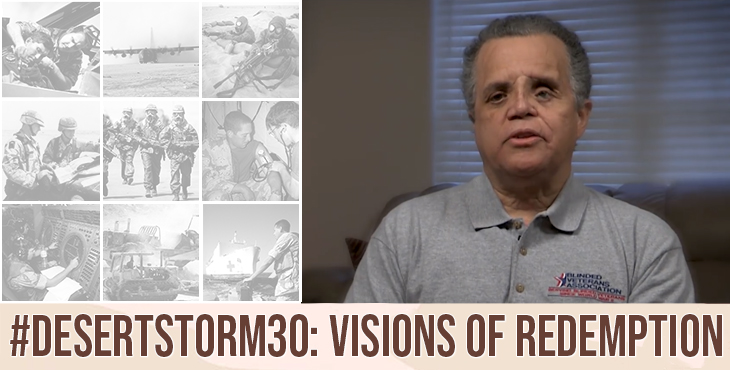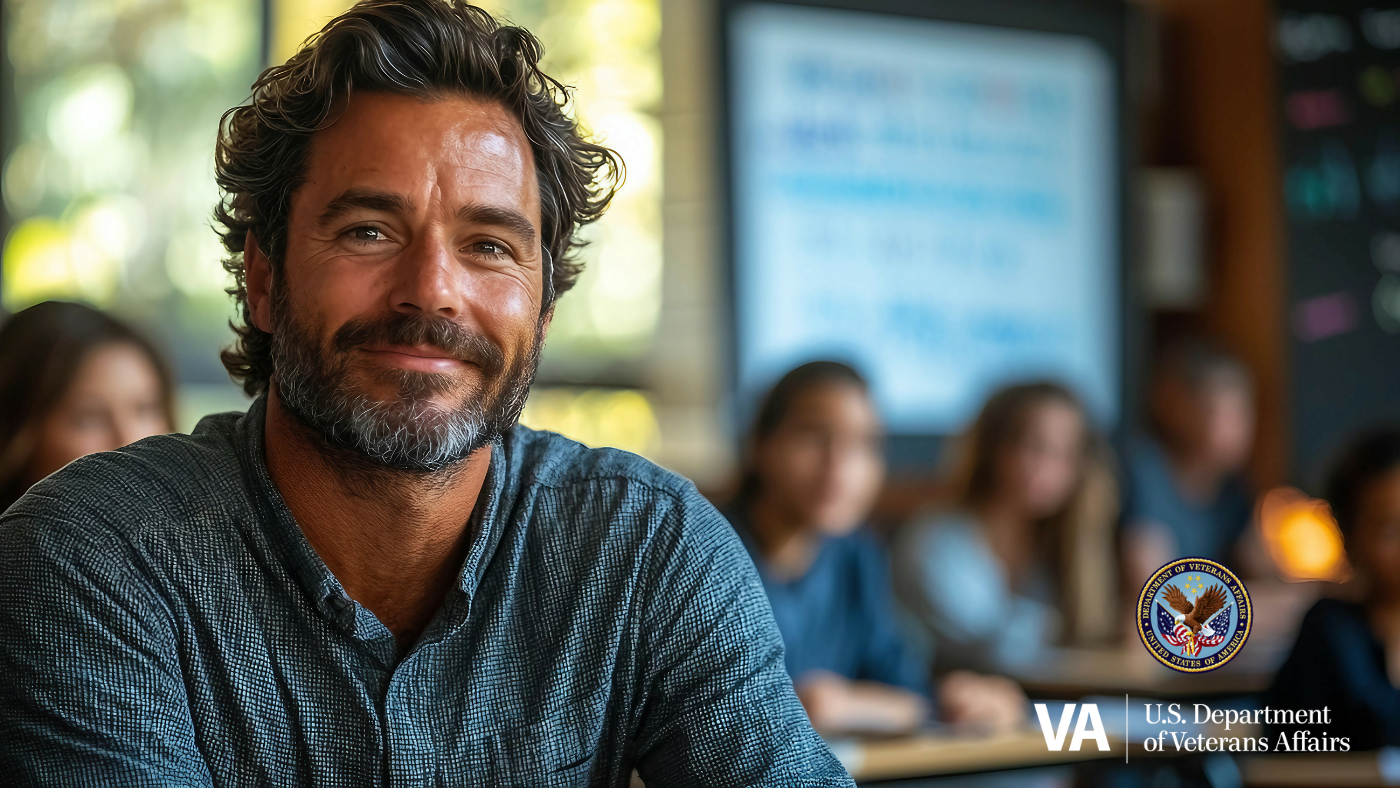While deployed during Operation Desert Storm, a horrific accident changed Marine Corps Veteran Kevin Jackson’s life. In a short period, he went from normal sight to permanent vision loss.
A normally sighted person has 180 degrees of vision in both eyes. Jackson’s vision is down to one degree in his right eye, with a small amount of his optic nerve attached to the eye. That gives him an extremely narrow window to view the world.
“It’s like looking through a straw with a sheet of wax paper in front of it,” he said. “It’s very cloudy vision.”
The Marine staff sergeant suddenly had to deal with a different world, one he admitted was life altering.
“Eighty percent of what goes into our brain on a daily basis comes from our vision,” he said. “What we see within our environment – from our family, from our friends, what we see on TV, what’s around us – is visual. We are a visual society, and to lose that vision after counting on it for so many years, it can be frightening. It can be traumatic and it can be downright scary.”
Blind Rehabilitation Services
Following his accident, Jackson turned to VA’s Blind Rehabilitation Services. The program helps Veterans and active duty service members to regain independence and quality of life.
“I had no idea what blind rehabilitation was prior to me losing my vision,” Jackson said. “I started transitioning into the care provided by the Department of Veterans Affairs.”
VA’s Blind Rehabilitation Services trace their roots back to 1948 at the Edward Hines Jr. VA Medical Center outside Chicago, Illinois. VA now has additional centers in California (two), Connecticut, Washington, Texas, Alabama, Puerto Rico, Arizona, Georgia, Florida, Mississippi and Ohio. The centers offer residential inpatient programs to a geographic area usually comprised of several states. The centers offer a variety of skill courses designed to help blinded Veterans achieve a realistic level of independence. These skill areas include:
- Orientation and mobility
- Communication skills
- Activities of daily living
- Manual skills/Visual skills
- Computer access training
- Social/recreational activities
In addition to the centers, VA has intermediate low-vision clinics and advanced ambulatory, low-vision clinics throughout the country.
For Jackson, he’s worked with providers on tasks ranging from using a tape measure to playing a guitar. Through the care provided, this Desert Storm Veteran has greatly improved his independence – something he’s thankful for.
“I have never been disappointed with the medical, the health care services received from the Department of Veterans Affairs,” he said.
More information
Veterans and active duty members with blind or low vision can get advanced vision care and rehabilitation services through VA. Learn more at https://www.rehab.va.gov/blindrehab/.
Interview and video by Canaan Brumley, Central Texas Veterans Health Care System
Topics in this story
More Stories
How much do you know about VA care, benefits and services? Don’t miss out on what you've earned—check out the "2025 VA Federal Benefits Guide for Veterans, Dependents, Survivors, and Caregivers" handbook to learn more.
VA has updated its process for awarding G.I. Bill benefits. This means that many Veterans who served multiple periods of military service (for example, Veterans who reenlisted) may be eligible for additional benefits for themselves or their beneficiaries.
Summer Sports Clinic is a rehabilitative and educational sporting event for eligible Veterans with a range of disabilities.








From one Marine Corps desert storm blinded veteran to another Semper Fi brother!
I remeber gettting on the huge International Commercial Jet to Saudi Arabia from Ft. Riley, Kansas and the snow was just starting to fall and fall heavy. We made a refuel stop to Spain and we took off to King Faud Airport and landed around 11:00 am. The sand was so hot under our boots, we we’re doing the knee lift dance in formation. The weather was hot,hot! I never been in this type of hotness. There is so much to tell, I would fill up this page. The one thing I will say. That I made some good friends and I met some foreign NATO troops. The nights were cold in the deep part of the desert and when we made our move toward the combat area, their we saw the the fireworks of the bombing of Saddam’s ammo bunker blow and shook the ground!